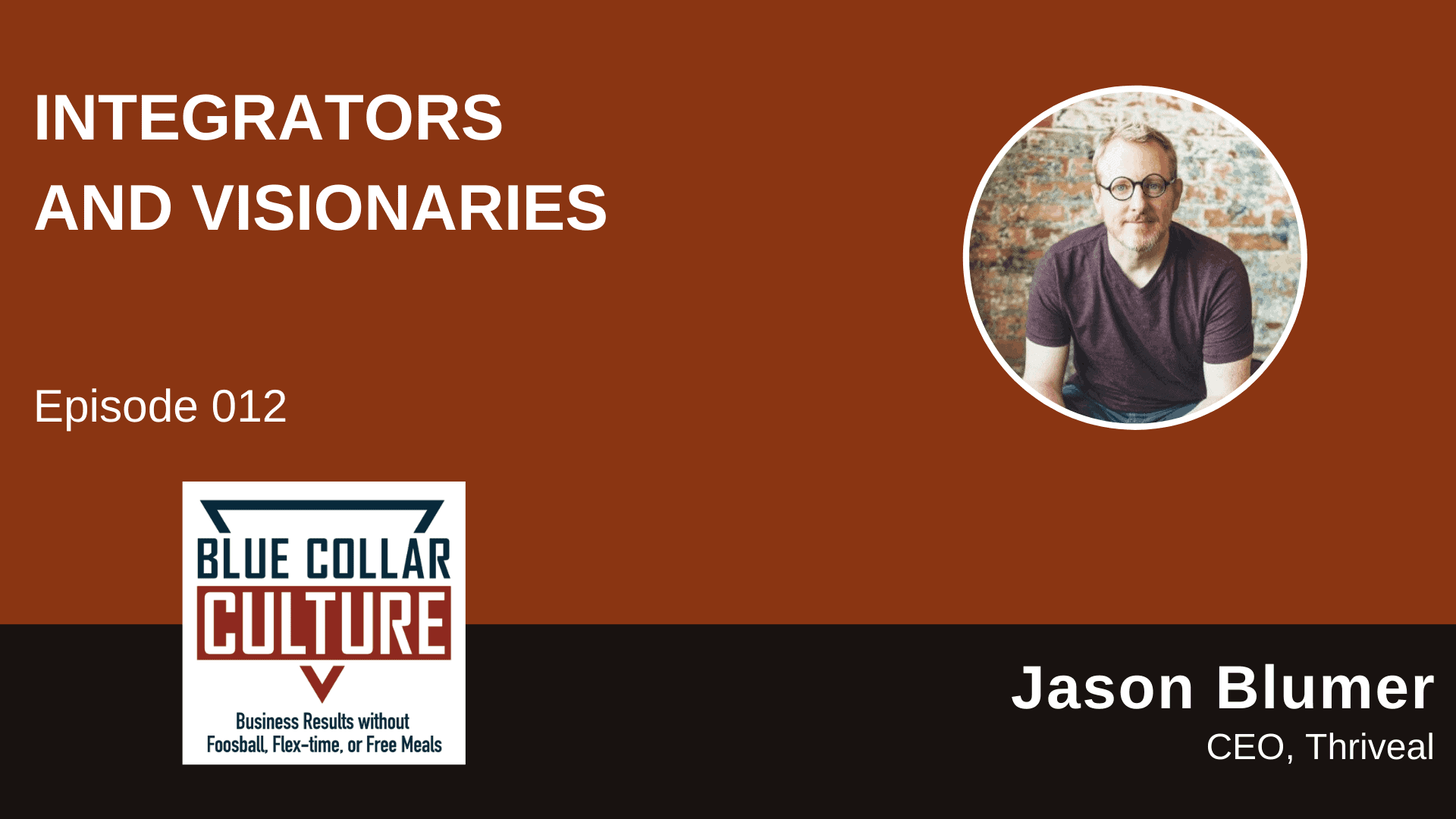Jason Blumer is a CPA. But he and his partner have created more than just a standard accounting firm.
As “entrepreneurial consultants,” they are passionate about giving business owners the tools and resources they need to grow their companies… while keeping the financials in order.
Along the way, he’s used many of the lessons he learned when growing his own business. A key element: finding the right partner that complemented his strengths – and kept him out of trouble.
Tune in to find out the strategies they’ve created for working together and with their employees, including…
- The Strategic Calendar Work Blocking technique
- The importance of having the right partner – who is your “opposite”
- A unique method to keep your team accountable and productive
- How a “clarity break” can make your business more profitable
- And more
Listen now…
Mentioned in this episode:
- Blumer CPAs
- Jason’s Website
- Connect with Jason on: LinkedIn, Twitter
- Thriveal

